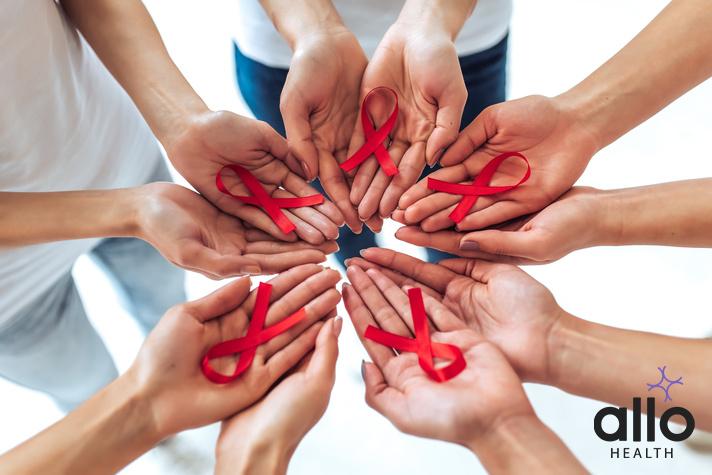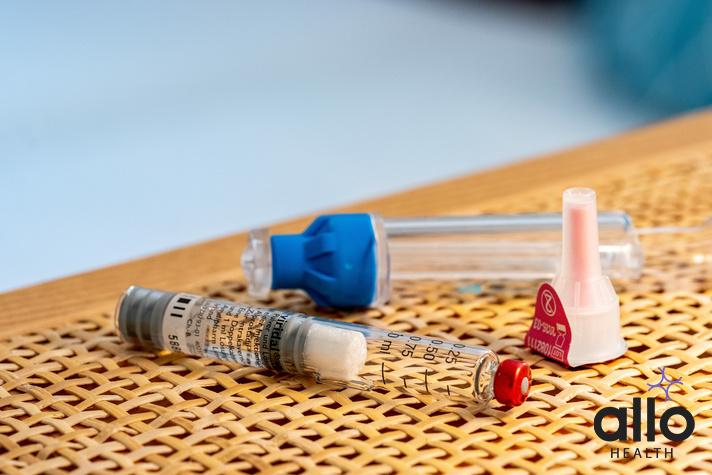HIV Effective Treatment Options

Allo Health is dedicated to personalized well-being, offering support and trusted information tailored to individual health goals. The platform emphasizes human-generated content, led by a distinguished medical team of experts, including physicians and sexual health specialists. Their commitment to credibility involves rigorous fact-checking, authoritative research, and continuous updates to ensure accurate, up-to-date information. Allo Health's unique approach goes beyond conventional platforms, providing expert-led insights and a continuous commitment to excellence, with user feedback playing a crucial role in shaping the platform's authoritative voice.

Dr Sanina Mansoor holds MBBS degree from Yenepoya university,Mangalore.She has 8 years of experience working as a medical officer at various health centres and medical colleges.
Why This Was Upated?
Our experts continually monitor the health and wellness space, and we update our articles when new information became available.
Updated on 26 February, 2025
- Article was updated as part of our commitment to diversity, equity, and inclusion.

"The following blog article may discuss medical treatments and interventions. However, it is important to note that the information provided is for general educational purposes only and should not be considered as a substitute for professional medical advice, diagnosis, or treatment. Always seek the guidance of a qualified healthcare professional for personalized medical advice.
Book consultation
Medical treatments are complex and should be tailored to individual circumstances. The information presented in this blog may not be applicable to everyone, as each person's medical condition, history, and needs are unique. Only a qualified healthcare professional can evaluate your specific medical situation, consider relevant factors, and provide appropriate recommendations for diagnosis, treatment options, and monitoring.
It is crucial to note that self-diagnosis, self-medication, or relying solely on the information provided in this blog for treatment decisions can have serious health consequences. "
HIV (Human Immunodeficiency Virus) has been a significant global health concern for decades. However, with advancements in medical science, there are now several effective treatment options available for managing HIV and improving the quality of life for those living with the virus. This comprehensive guide explores the various treatment approaches, including antiretroviral therapy (ART), preventive measures, and emerging technologies, shedding light on the progress made in combating HIV/AIDS.
Understanding HIV And Its Impact
HIV is a virus that attacks the body’s immune system, specifically targeting CD 4 cells (T cells), which play a crucial role in fighting infections. As the virus replicates and destroys more CD 4 cells, the immune system becomes weakened, making the individual more susceptible to infections and other health complications. If left untreated, HIV can progress to AIDS (Acquired Immunodeficiency Syndrome), which is the advanced stage of the infection where the immune system is severely compromised.
Antiretroviral Therapy (ART)
ART is the cornerstone of HIV treatment. It involves a combination of medications that target different stages of the HIV life cycle, effectively suppressing the virus and preventing its replication. The goals of ART are to reduce the viral load (the amount of HIV in the blood), maintain a healthy CD 4 count, and improve overall health and quality of life.
ART medications are categorised into several classes, including:
- Nucleoside/Nucleotide Reverse Transcriptase Inhibitors (NRTIs/NtRTIs)
- Non-nucleoside reverse Transcriptase Inhibitors (NNRTIs)
- Protease Inhibitors (PIs)
- Integrase Strand Transfer Inhibitors (INSTIs)
- Entry Inhibitors
- Fusion Inhibitors
The choice of ART regimen depends on various factors such as the individual’s viral load, CD 4 count, drug resistance profiles, potential side effects, and treatment history. Adherence to ART is crucial for its effectiveness, as missing doses or inconsistent use can lead to treatment failure and drug resistance.
Preventive Measures

Apart from treatment, several preventive measures are essential in managing HIV:
- PrEP (Pre-Exposure Prophylaxis): PrEP involves taking HIV medications before potential exposure to the virus, such as in cases of high-risk sexual activity or injection drug use. It can significantly reduce the risk of HIV acquisition when taken consistently.
- PEP (Post-Exposure Prophylaxis): PEP is a short-term course of HIV medications taken after potential exposure to the virus, such as through unprotected sex or needle-sharing. It should be initiated within 72 hours of exposure for optimal effectiveness.
- Safe Sex Practices: Using condoms consistently and correctly during sexual activity can reduce the risk of HIV transmission. Additionally, regular testing for sexually transmitted infections (STIs) is recommended.
- Needle Exchange Programs: For individuals who inject drugs, access to clean needles and syringes through needle exchange programs can reduce the risk of HIV transmission.
Emerging Technologies And Research

Ongoing research and advancements in technology continue to improve HIV treatment and prevention strategies. Some notable developments include:
- Long-Acting Injectable Therapies: Long-acting injectable medications, administered every few weeks or months, are being studied as alternatives to daily oral medications for HIV treatment. These therapies can improve adherence and convenience for patients.
- HIV Vaccines: Research into developing an effective HIV vaccine is ongoing. While no vaccine is currently available, progress in vaccine development offers hope for future prevention efforts.
- Gene Editing Techniques: Technologies like CRISPR-Cas9 are being explored for their potential to edit HIV genetic material, potentially leading to functional cures or sustained viral remission in infected individuals.
Challenges And Considerations
Despite significant progress in HIV treatment and prevention, several challenges remain:
- Access to Treatment: Ensuring universal access to HIV testing and treatment remains a challenge, particularly in resource-limited settings and marginalised populations.
- Stigma and Discrimination: HIV-related stigma and discrimination can deter individuals from seeking testing, treatment, and support services, highlighting the importance of education and advocacy efforts.
- Drug Resistance: The emergence of drug-resistant strains of HIV underscores the need for ongoing surveillance, adherence support, and development of new antiretroviral medications.
Effective treatment options for HIV, including ART, preventive measures like PrEP and PEP, and ongoing research into emerging technologies, have significantly transformed the landscape of HIV/AIDS management. With continued efforts in education, research, and advocacy, the goal of ending the HIV/AIDS epidemic and ensuring optimal care for those living with the virus remains within reach.
This guide aims to provide a comprehensive overview of HIV treatment options, empowering individuals, healthcare providers, and communities with knowledge and resources to combat HIV/AIDS effectively.








































